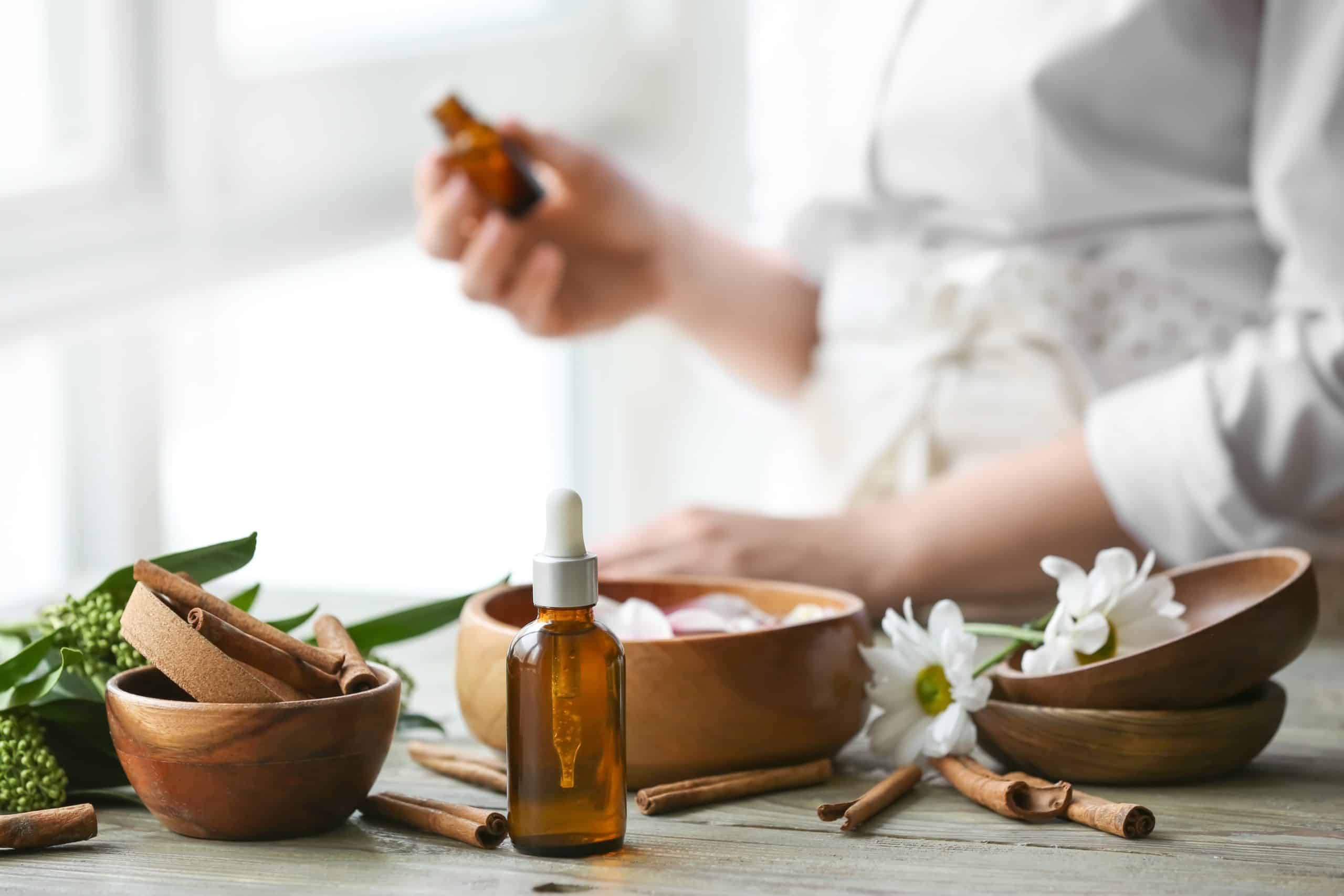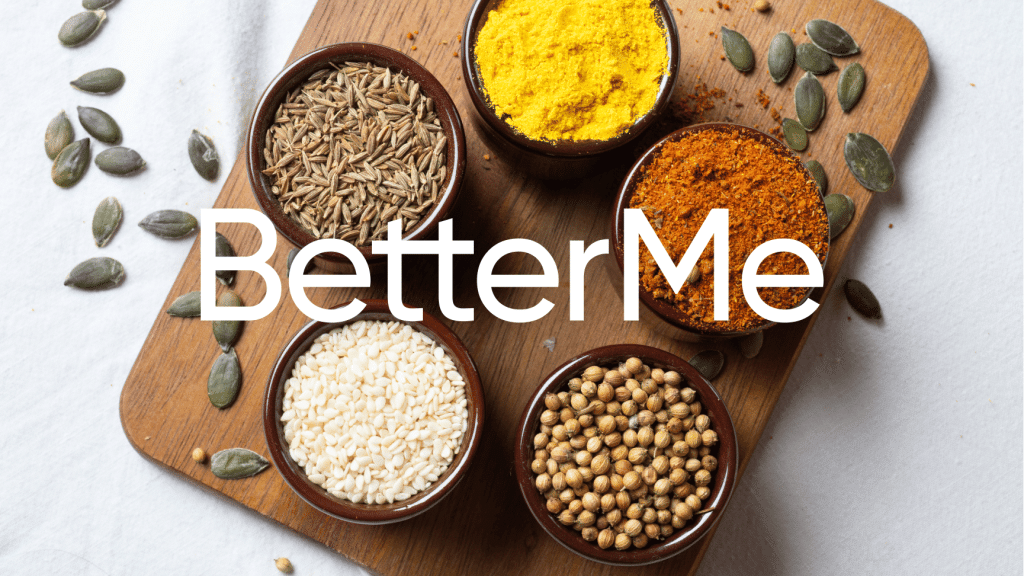Have you heard about conventional beauty products such as cinnamon taking the limelight in the world of skincare today? Yes, you read that right! The same spicy aromatic component that warms up your favorite baked treats could also lend a hand in giving you that perfect glowy complexion.
Apart from being an incredibly delicious spice, cinnamon is also found to be a powerful ingredient that has a host of benefits for your skin. It is packed with vitamins and minerals like vitamin C, zinc, iron, potassium, and magnesium (9).
It’s also a rich source of antioxidants that can help protect your skin from the harmful effects of free radicals, which are responsible for premature aging. Plus, its active compounds have anti-inflammatory properties to soothe redness and irritation.
In this article, we’re spilling the beans on cinnamon’s secret benefits for your skin and the things you need to know about this amazing spice.
9 Fascinating Benefits Of Using Cinnamon On Your Skin
Cinnamon is not just another addition to your pantry. Apart from adding zest to your coffee and pastries, it also has incredible benefits for your skin, leaving it looking youthful, glowing, and healthy.
This aromatic and valuable spice is packed with antioxidant, anti-inflammatory, and antimicrobial properties that make it a unique ingredient in skincare products.
Here are nine fascinating benefits of using cinnamon on your skin:
1. Reduces Acne
Cinnamon is high in antimicrobial and anti-inflammatory properties that make it effective in reducing acne. The spice has been shown to inhibit the growth of acne-causing bacteria while calming inflamed skin (8).
It also contains antioxidants that protect against free radicals, reducing the appearance of blemishes and scars (10).
Read More: Is Vitamin D Good For Your Skin? 7 Benefits You Need From The Sunshine Vitamin
2. Fights Signs Of Aging
Cinnamon is packed with antioxidants, which protect against free radicals that accelerate aging. When applied topically, it boosts collagen production, improves skin elasticity, reduces fine lines and wrinkles, and improves skin texture(2).
3. Soothes Dry Skin
Cinnamon has anti-inflammatory properties that can help soothe dry skin and prevent the discomfort that comes with it. It can moisturize irritated skin by increasing blood flow and bringing essential nutrients to the skin’s surface (5).
It is rich in minerals like iron, manganese, and calcium, which also provide nourishment to the skin, keeping it healthy and glowing.
4. Reduces Skin Inflammation
Cinnamon contains cinnamic acid, which has potent anti-inflammatory properties. These properties help reduce skin inflammation, leaving it smooth, calm, and supple (4). Cinnamon also has enzymes that can restore the skin’s natural pH level, keeping the skin from getting irritated.
5. Promotes Blood Circulation
When applied to the skin, cinnamon acts as a vasodilator, promoting blood circulation(12). It helps bring oxygen and nutrients to the surface of the skin, giving it a natural, healthy glow. Improved blood flow also helps to detoxify the skin, making it look and feel rejuvenated.
6. Exfoliates Skin
Cinnamon has coarse particles that are effective in exfoliating dead skin cells. This helps to unclog pores, remove impurities, and reveal fresh, vibrant skin. Other than that, it has antiseptic properties that protect the skin from infections and other harmful pollutants.
7. Evens Skin Tone
The antioxidants and anti-inflammatory properties of cinnamon make it an excellent natural skin lightener. It helps even out skin tone, improving overall complexion and leaving the skin looking radiant. It reduces melanin production, thereby providing an even tone to the skin.
BetterMe app will provide you with a host of fat-frying fitness routines that’ll scare the extra pounds away and turn your body into a masterpiece! Get your life moving in the right direction with BetterMe!
8. Reduces Dark Spots
Cinnamon has been shown to reduce dark spots on the skin. This is because the spice is packed with antioxidants that protect the skin from free radicals and reduce the appearance of hyperpigmentation (1).
The antimicrobial properties of cinnamon are also useful in reducing the appearance of acne scars and other blemishes.
9. Plumps And Hydrates Skin
Cinnamon is effective in plumping and hydrating the skin. It aids in the production of collagen, which reduces the appearance of fine lines and wrinkles. Additionally, it helps to lock in moisture, leaving the skin soft and supple.
This ingredient is full of vitamins C and E, which promote healthy cell growth, prevent damage from pollutants, and offer excellent hydration for the skin (7).
How To Use Cinnamon On Your Skin?
There are several ways to incorporate cinnamon into your skincare routine. You can make a cinnamon mask by mixing the cinnamon powder with honey and applying it to your face. Leave it on for 15-20 minutes and rinse off with lukewarm water (5).
You can also add cinnamon oil to your face moisturizer or combine it with your favorite carrier oil, such as coconut or jojoba oil, and apply it to the skin as a serum.
Does Ingesting Cinnamon Help Your Skin?
In addition to topical use, you can also reap the benefits of cinnamon by adding it to your diet. Cinnamon is loaded with antioxidants and anti-inflammatory compounds that help protect and nourish skin from within.
Consuming cinnamon may probably reduce the oxidative stress caused by free radicals in the body, which can lead to healthier skin. This effect is expected of a diet rich in antioxidants and other skin-friendly compounds.
Read More: 17 Proven Black Pepper Oil Benefits For Aromatherapy, Skin, Hair, And Health
Best Ways To Use Cinnamon On The Skin
Cinnamon can be used in a variety of ways for the skin, including face masks, scrubs, and serums.
Here are some popular methods for using cinnamon on the skin:
- Cinnamon Powder Face Mask: Mix cinnamon powder, honey, and aloe vera gel to make a face mask. Apply to your face, leave on for 15-20 minutes, and rinse off with warm water.
- Cinnamon Oil Spritz: Combine cinnamon oil, water, and witch hazel in a spray bottle to make a refreshing facial spritz. Make sure to properly dilute the oil before using. You can spray this on any area of your skin, such as dry heels, to soften it.
- Cinnamon Sugar Scrub: Mix cinnamon powder, sugar, and coconut oil to create a skin-smoothing scrub. Gently massage the scrub onto your skin for a few minutes, then rinse with warm water.
Types Of Cinnamon To Use
There are two primary types of cinnamon: Ceylon cinnamon and Cassia cinnamon. Ceylon cinnamon is milder and sweeter, while Cassia cinnamon is more aromatic and has a stronger flavor.
When using cinnamon on your skin, it’s important to use the appropriate type. For best results, opt for Ceylon cinnamon as its milder properties make it better suited for topical application. With that being said, if you have sensitive skin, it’s best to avoid using cinnamon altogether as it can be too harsh for certain skin types and may cause irritation.
Storage And Preparation
Cinnamon powder and sticks should be stored in a cool, dry place away from direct sunlight. If you’re using cinnamon sticks, grind them into a fine powder before mixing them with other ingredients.
Remember that when preparing your cinnamon mixture, always use fresh cinnamon and only use the recommended amount in the recipe.
Potential Risks Involved
While cinnamon is generally safe to use on the skin, it can cause irritation or an allergic reaction in some people (3). If you experience redness, itching, or swelling after using cinnamon on your skin, stop using it immediately and seek medical attention.
Furthermore, it’s essential to note that cinnamon should never be used in concentrated form, as this can cause skin damage. Always dilute cinnamon powder or oil with other ingredients before applying it to the skin.
Betterme will keep you laser-focused on your weight loss journey! Nutrient-packed meal plans, fat-blasting workouts, galvanizing challenges and much more. Try using the app and see for yourself!
Precautions To Take While Using Cinnamon On The Skin
Limit the Duration of Application: Once applied, most cinnamon treatments should be left on the skin for no more than 20-30 minutes. Leaving them on for longer than this can cause irritation.
Rinse Thoroughly: Always rinse off cinnamon treatments with warm water and a gentle cleanser to prevent any potential allergic reactions.
Patch Test: Before using cinnamon on larger areas of the skin, always do a patch test on a small area to ensure you don’t experience an allergic reaction.
1. Limit Your Use
Cinnamon is a potent spice, and using it excessively can be harmful to your skin. Always patch-test a small area of your skin before using it to be sure that your skin does not have unexpected reactions.
Additionally, only use cinnamon on your skin 1-2 times a week to avoid irritation, especially if you have sensitive skin (6).
2. Use Diluted Cinnamon
Pure cinnamon oil or cinnamon powder can be too harsh for the skin. It’s best to dilute cinnamon by mixing it with another carrier oil or another ingredient such as honey. To make a cinnamon mask, mix one teaspoon of natural honey with half a teaspoon of cinnamon powder. Add a drop or two of water if the mixture is too thick to create a smooth paste.
3. Avoid Using Cinnamon On Broken Skin
Do not apply cinnamon on open wounds, fresh scars, or broken skin as it can cause a burning sensation or irritation. Additionally, cinnamon can cause severe inflammation and worsen existing skin conditions, such as dermatitis and eczema.
4. Use As Directed
Do not leave cinnamon on your skin for extended periods as it can cause unwanted side effects. If you’re using cinnamon as a face mask, leave it on for 15-20 minutes before washing it off. Consult with a dermatologist who can advise you on how to use cinnamon in your skin routine properly.
5. Choose Quality Cinnamon
Choose quality cinnamon rather than any old cinnamon. The species of cinnamon bark called “Ceylon cinnamon” is the best type for topical applications (11).
The Bottom Line
Cinnamon can benefit your skin in numerous ways, including reducing inflammation, fighting acne, and promoting blood flow. However, it’s essential to use cinnamon safely and effectively to prevent skin damage or allergic reactions.
Always use Ceylon cinnamon powder or sticks, store and prepare it properly, and take precautions when using it to avoid potential skin irritations.
DISCLAIMER:
This article is intended for general informational purposes only and does not address individual circumstances. It is not a substitute for professional advice or help and should not be relied on to make decisions of any kind. Any action you take upon the information presented in this article is strictly at your own risk and responsibility!
SOURCES:
- 20 Health Benefits of Cinnamon (2017, veryhealthy.life)
- 23 Foods To Eat for Healthier Skin (2022, clevelandclinic.org)
- 7 Cinnamon Side Effects You Should Be Aware Of (2023, flo.health)
- 8 Cinnamon Benefits: Dosage & Safety (2022, botanical institute.org)
- 9 Ways Cinnamon Can Benefit Your Skin (2023, healthyy.net)
- ACNE CLINICAL GUIDELINE (2023, aad.org)
- Cinnamon (2023, nih.gov)
- Cinnamon and health (2010, nih.gov)
- Cinnamon Nutrition, Types, Usage, and Benefits (2023, healthnutritionnews.org)
- The Benefits of Cinnamon (2021, clevelandclinic.org)
- Types Of Cinnamon: Which Is The Healthiest? (2023, illuminate labs.org)
- Vasodilatory effects of cinnamaldehyde and its mechanism of action in the rat aorta (2011, nih.gov)
















